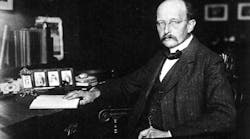The clumsily-named Intellectual Property Secure Lighting Alliance (we think "IP-Secure Lighting Alliance" reads better), or IPSLA, is a network of solid-state lighting component suppliers who believe that respecting IP is essential to accelerating the adoption of solid-state lighting.
Members are required to certify that qualified patent attorneys have reviewed their products and processes, with reference to existing IP, and found them to be non-infringing at all levels (for more details, see "Progress and procedures", below).
Whether such certification will actually protect member companies from legal challenges by other patent holders remains to be seen. However, membership of IPSLA is likely to provide customers with a higher level of confidence that their supplier will not become embroiled in patent lawsuits and injunctions that could interrupt lines of supply.
Companies that develop LED-based modules and fixtures currently tend to choose from a limited set of "IP-friendly" sources for LED chips, phosphors and packaged devices. Otherwise, these companies risk exposing themselves to the consequences of using potentially infringing products.
The IPSLA was formed by BridgeLux (formerly eLite Optoelectronics), a supplier of power LED chips, and Intematix, a supplier of LED phosphors. The companies say that conformance to IPSLA’s guiding standards will enable emerging companies, working on innovative LED packaging and module integration, to more rapidly penetrate high-volume lighting market segments worldwide.
"LED chip packagers are coming to understand that there are IP-secure and patent-protected merchant alternatives for such things as phosphors and power LED chips," said Intematix VP of Engineering and co-founder, Yi Qun Li. "This alliance is a means to both provide security and open up additional supplier opportunities to the module integrators."
Progress and procedures
BridgeLux's Tom Jory says that roughly a dozen companies have expressed interest in joining, but currently only Intematix and BridgeLux are "founding members". Current activities include forming a managing committee, establishing bylaws and determining if there will be a cost to join: Jory says there will probably be a modest fee or no fee at all.
Potential members (most are LED packaging companies) need to follow a multi-step procedure, explains Jory. To start, they should hire an independent US patent attorney to study the company’s technology and compare it to all related US patents held by competitors.
The company should receive a "freedom to operate" opinion from that attorney: this may include making changes to the product if the opinion initially finds that products are infringing.
Companies will then share some proof of receipt of that "freedom to operate" opinion letter with the IPSLA committee, including a list of US patent numbers which were involved in the investigation.
The IPSLA committee will review that "proof" (under a non-disclosure agreement) and decide if the company and the attorney have done a comprehensive study – if yes, they become a member.
Jory also says that IPSLA will create a "logo" which can appear on approved products, and will market the value of that logo to SSL users throughout the supply chain.




